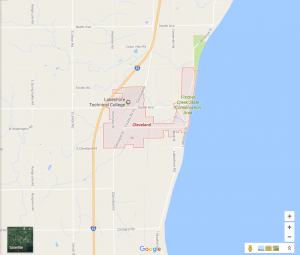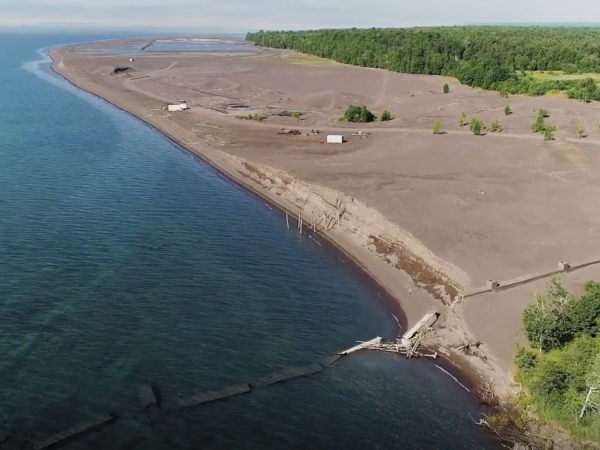
If you live near any of the Great Lakes, you might have seen it.
It happened not long after midnight on Monday, February 6th: a huge fireball streaked across the sky.
The American Meteor Society’s Mike Hankey tells Great Lakes Now, “It was reported as a bright flash in the sky that was green and blue and bright as the sun.” He says the AMS got more than 200 reports about the meteorite, from as far east as New York and as far west as Iowa, but he says thousands of people are believed to have seen it. It may have had more sightings than most early morning meteorites because so many people had stayed up late to party after the Super Bowl.
Hankey says, “It blew apart, split into multiple fragments and then went dark” before landing in Lake Michigan about five miles east of Cleveland, Wisconsin.
He says the majority of the reports that came in to AMS were from along the Lake Michigan coast of Wisconsin, Michigan, Indiana and Illinois as well as from Canada.
Hankey says his organization gets only about two or three reports like this a year. And what was unusual about this one is that it was clearly seen splintering into Lake Michigan.
Most of the reports came in at about 1:30 a.m. Hankey says, ”What we saw was a sporadic fireball that originated in the asteroid belt. Unlike a comet that is icy and fragile and small, this was hard, dense rock and metal. It was so big, it showed up on Doppler radar.” Some people reported hearing what sounded like a sonic boom when it hit the lake.
Hankey tells Great Lakes Now the meteorite burst into Earth’s atmosphere in a cloud that was five miles wide. He says, “You can tell by the brightness and the radar return, with something as bright as the sun, it had to be over three feet long.”
He says the actual size of the meteorite when it crashed into Lake Michigan was probably “the size of a minivan or an SUV.”
He says the meteorite was approximately 4.5 billion years old.
So: is it worth diving down into the icy waters to try to retrieve some of the bits of the ancient rock that soared through space? Hankey says probably not. But he says if he lived anywhere near the spot where the meteorite landed in Lake Michigan, he would certainly walk along the shores to see if he could discover a few fragments of this historic event along the beach.
“Did you see it? If you saw the meteorite over Lake Michigan, leave a comment for Great Lakes Now!”
For more information about the meteor, go to amsmeteors.org






